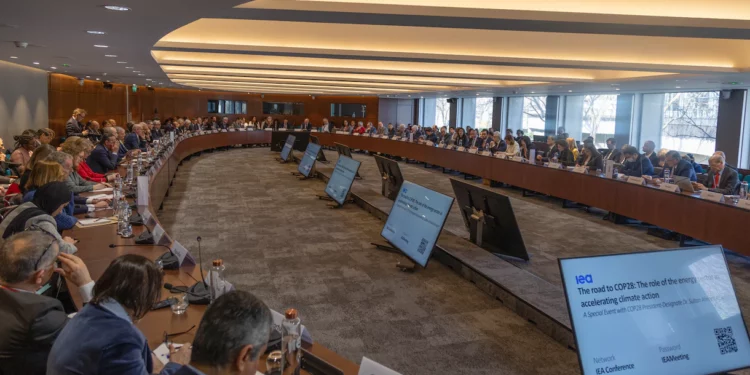COP28 has declared its main concerns, including monitoring and restoring freshwater environments, enhancing urban water resilience, and supporting water-adaptive food systems. These priorities reflect the importance of water in climate adaptation and mitigation.
The COP28 Administration has partnered with the Netherlands and Tajikistan to serve as COP28 Water Champions, aiming to deliver water policy, innovation, and funding outcomes at COP28.
The Water Action Agenda was developed at the UN 2023 Water Conference in March, which was co-hosted by the Netherlands and Tajikistan. The COP28 partnership seeks to build on the results and momentum generated during this conference.
The agenda of COP28 aims to give unprecedented attention to water risks and opportunities, covering various aspects from agriculture to disaster prevention.
Climate change profoundly affects water through flooding, droughts, and sea level rises, impacting homes, ecosystems, and livelihoods. Water is essential for human survival, health, and food systems, and it’s also fundamental to maintaining ecological balance and biodiversity.
Tajikistan and the Netherlands express their commitment to co-lead COP28’s Water Plan and prioritize bringing water to the top of the climate agenda.
Collaboration between the UAE, Brazil, and other stakeholders is expected to put people, nature, lives, and livelihoods at the center of climate action, making it easier to address climate challenges, including restoring freshwater ecosystems.
A significant high-level discourse on building water resilience in food systems will take place at COP28, bringing together various stakeholders to assess water and food resilience in National Determined Contributions (NDCs) and National Action Plans (NAPs).
Climate change is causing severe droughts, floods, and water contamination, which directly impact food security, community cohesion, and economic growth. Access to clean drinking water and sanitation is already facing difficulties, which are worsened by these climate impacts.











